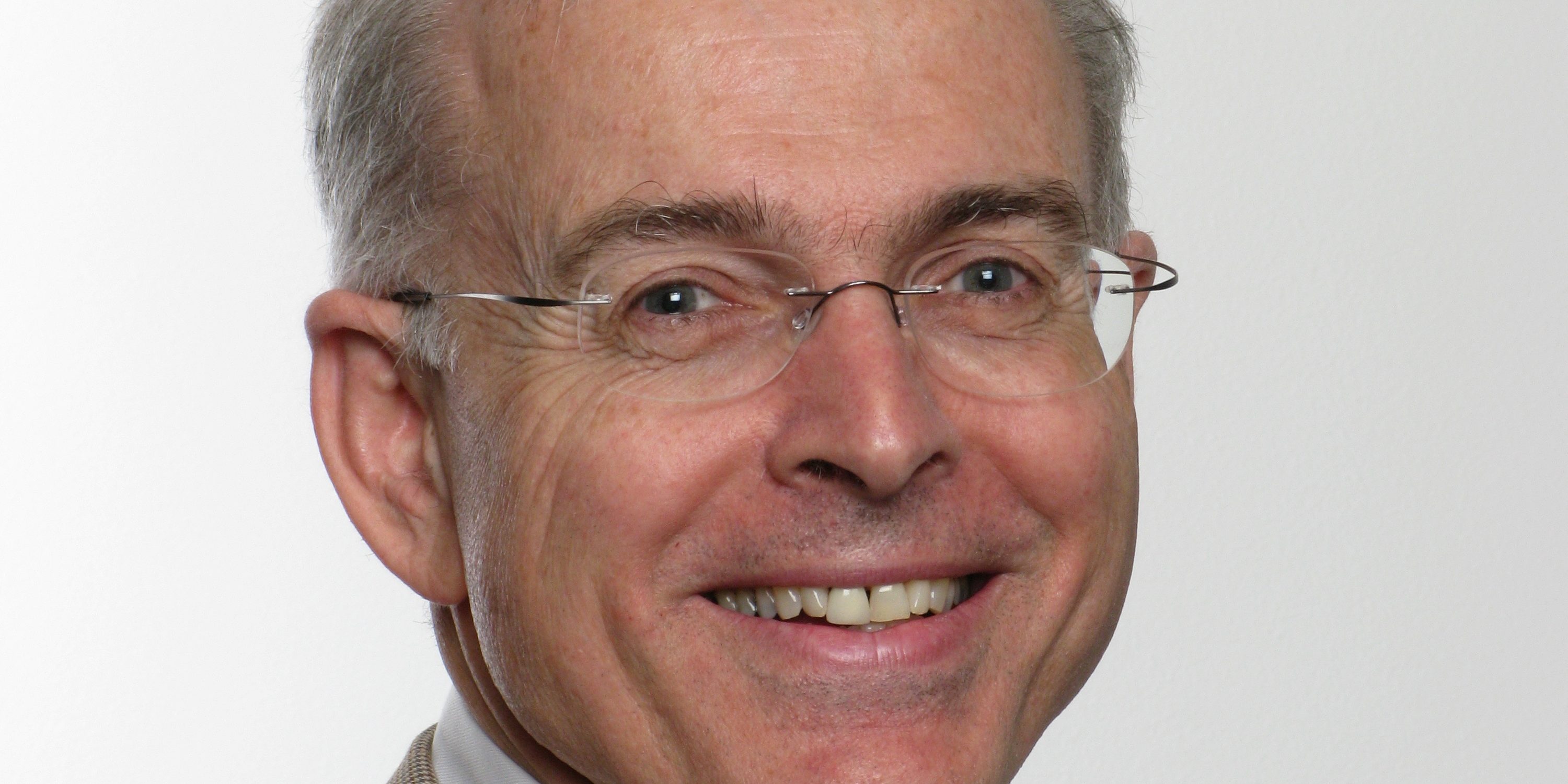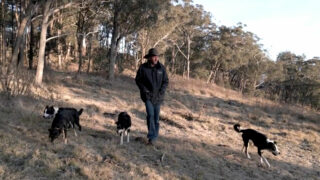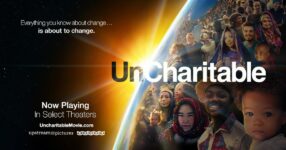In this Podcast we speak with Richard Spencer, a deeply experienced and thoughtful social purpose leader.
Richard has been a Chief Executive in the not-for-profit sector for 25 years. Previous roles include CEO of The Benevolent Society, CEO of Cerebral Palsy Alliance and CEO of AFS Intercultural Programs in New York. He served as Executive Director of UNICEF Australia (United Nations Children’s Fund) in the late 1980s.
Richard began his professional career as a corporate lawyer with Clayton Utz in Sydney and then spent 10 years in senior management roles with Rio Tinto in London.
He is currently a director of Social Ventures Australia and in 2016 was appointed as a Commissioner with the Australian Government’s Productivity Commission. He previously served on the Boards of the NSW Government’s Commission of Audit, the Community Council for Australia and GoodStart Early Learning.
Richard talks about creating a career aligned to your values, the disruption the NDIS will have on the sector, and tips on leading organisational change.
Listen Now Podcast: Play in new window | Download Listen to it on iTunes Apple Podcasts | RSS | Subscribe on iTunes
Want more?
- Read the transcript below
- Learn more about our career coaching, and organisational work.
Read the transcript
Elise Sernik: Welcome to episode two of conversations that shape us, the podcast series by Leadership Space. My name is Elise Sernik. I founded Leadership Space to provide visionary social purpose leaders with specialised support for their own leadership development and to lead organisational change, which is exactly why I asked Richard Spencer as today’s guest and I’m really delighted that he accepted. Richard has upwards of 20 years’ experience in the sector but it’s not just his years that for me mark him out as someone really worth listening to. Richard’s a courageous person, created his own life path and he continues to do so. He’s absorbing to listen to, in my opinion, deeply thoughtful, charming and not someone who falls into the trap of repeating tripe and easy statements, either about leadership or the social purpose sector.
So Richard, thank you and welcome. What I’d love to cover with you are three different topics. Firstly to hear form you on the topic of creating a social purpose career in life. Then if we can move onto the question of the National Disability Insurance Scheme (NDIS) and what it means in terms of sector disruption – it’s a big policy change, it’s affecting human service organisations that you’ve had a lot of exposure to over the last couple of decades so I’m interested in your unique perspective. And then I’d like to finish with your reflections: what can leaders do that really support successful organisational change for those in the human services area that are directly affected by the NDIS but also more broadly, given your diverse experience as a mentor and a leader.
Do you want to start with telling us what your personal journey has looked like and perhaps why you have taken the decisions that you have taken?
Richard Spencer: Right, thanks Elise. Yeah, as I reflect back on what I do today and what that journey looks like, it was certainly unpredictable and never quite what I intended but I think there are a couple of experiences that really shaped what happened and what I did with my life after that, particularly going back to when I was 17. I was an exchange student in the United States living in a really rich part of north of New York City but terrific people who took a group of us into Harlem on Friday afternoons to ostentatiously do work with young black and Porto Rican kids. The learning experience was not theirs; it was ours. So that exposed me to a completely different world, I mean this was a year after the Harlem race riots – a time of a lot of reflection and angst in the United States. So I got to see a bit of that and that stayed with me. I don’t think I instantly changed my life at that point but it stayed with me so when I came back to Australia, went to university, set out on a law career and had the experience in one of the major law firms in Sydney. I travelled overseas because of that first experience and ended up working for Rio Tinto for ten years. Fantastic experiences, loved every minute of it, really gained a great deal.
I came back to corporate Australia in the mid 80s but I began to do a little bit more self-reflection – what was important in my life. I’d enjoyed my corporate career but I guess I was looking for something else so I made the decision to join Unicef at that time. I was the National Director for Unicef in Australia.
Elise Sernik: I had no idea that was in your background! The things you discover.
Richard Spencer: That took me on a different journey to Brazil because I worked with Unicef in Brazil for a year and then shortly after that I had the privilege to be the President and CEO of the Student Exchange Programme that I’d been on at a much earlier age, based in New York City. So I was in New York for eight years, came back here to be CEO of Cerebral Palsy Alliance. Then had some time out in Bangkok, which we can come back to if that’s of interest, but then back to being the CEO of the Benevolence Society which was the last fulltime executive role that I had. None of that was predictable. I think a pivotal point was when I was roughly about 40ish and some people think well that’s the classic midlife crisis but I liked the reaction of a friend of mine in the UK at the time who when I told him about this and he said: “oh I don’t know, I think it’s a midlife solution”. And it has been for me so for the past 25 years I’ve been on an extraordinary journey and it continues.
I think if you’re interested and passionate about what we all do in this sector and about leadership and about how to bring about change, you never stop learning, you never stop having new experience, which I think is really important and meaningful. You gave me a very nice introduction to which my reaction was: gee, if you hang around long enough, you become interesting to people. Part of that is reflecting on a lot of those experiences and how do you take all of that and continue to make a contribution, if that doesn’t sound too self-focused.
Elise Sernik: You’ve got a portfolio of stuff now too, right?
Richard Spencer: Yeah, exactly. Stepping down from fulltime executive roles was fascinating because that gave me the opportunity to, both as a Director of Social Ventures Australia and I was chairing the redevelopment of a public housing estate in western Sydney and doing various other things, it gave me the opportunity to look around at what’s going on in the sector. You don’t get that opportunity, I think, as a CEO, you’re just full on the whole time thinking about and reflecting on your own organisation so it’s quite a luxury to sit back and see what’s happening and try to think about: well, what really matters here; what’s important; what are the big changes taking place?
I’ve also been able to do some mentoring of leaders, which I’ve thoroughly enjoyed. I find that really fascinating and I was surprised by it as well because I was a bit: oh yeah mentoring’s okay but I’m not sure what that’s about. I thought at one stage it might be a bit of a fad but having done it now for about five years, I think it’s enormously important for anybody in a senior leadership role to have that opportunity: it may be friends; it may be family; it may be a professional mentoring relationship but you do need that opportunity to reflect, to think, to explore ideas with somebody in a safe zone outside your normal day-to-day work.
Elise Sernik: You came back as the interim CEO for Jewish Care too, so not able to stay away for too long!
Richard Spencer: Interesting, yeah. I think once again it’s a very interesting situation. Clare Burnham who’s the very successful CEO of Jewish Care – been doing it for eight years and just, I think very sensibly said: “look I need a break, I need to re-energise, I need to think about where the organisation can go from here”. So what happened was: she decided to take a six month sabbatical, asked me if I’d come into the organisation during that period, which is what I’m doing at the moment so delighted to do so. She and the board were terrific. They said: “don’t sit there, take a look, tell us what you think, what else might we be doing, what could we be reflecting on”. So it’s fantastic of Clare and the board, they gave me a bit of a license.
Elise Sernik: Very courageous.
Richard Spencer: Yeah, actually a few people have said that! Clare’s a confident, successful leader and I think that’s fantastic that somebody would do that. That just shows an openness to new thinking, new ideas and I think some good things are coming out of that already and will do so when she takes on the role again.
Elise Sernik: Fantastic, it is a very great tribute to her and she is a very solid leader. When I think about you and your career, and what’s struck me as a reflection of your character and one of many things, is you stepping out and becoming a fulltime father, taking the parenting role. That was before the Benevolence Society, is that right?
Richard Spencer: Yes, that’s right.
Elise Sernik: For many people, there’s a desire to change course, take time out, get work life balance and there’s some key pivot points in your life: one where you move from commercial to social purpose from an outsider’s perspective; and one where you took on the primary parenting role. What’s informed your ability and perspective around making those choices?
Richard Spencer: I think it’s important always to just reflect on who you are and what matters and I’m not saying I do that every day – that would be slightly ridiculous. But I do think at certain points in your life you do need to step back and reflect a bit on: what am I doing? It was summed up for me by Norman Drummond who is one of the early friends of SVA – a wonderful Scottish based leader – that many listeners would know of. He posed three questions which I think are great for any individual and any organisation, that is: who are you; why are you living and working in the way that you are; and the third one, that I often describe as the zinger and that is, what may you yet become? And of course, those are simple questions but deeply reflective questions.
I was a late parent and a great joy was suddenly in my life and my wife’s life, and we said a couple of things at that point: both of us will not work fulltime from this point on while our daughter is young and is going through her formative years, and we’ve basically stuck to that formula. So my wife had the opportunity to run Unicef in south east Asia, based in Bangkok and we were there nearly four years. So I did one or two consulting roles and I took the opportunity to do some post-graduate work in ethics at that time which I had always been fascinated by but hadn’t really had time to reflect on it and combined with the parenting role. Incredibly important as I look back on that – my daughter’s now 17 – but that was just a wonderful, wonderful experience. I see so many parents typically males, who miss out on that and you just can’t substitute those years. She was aged three through to seven.
I had a lovely experience when I was interviewed for the Benevolence Society role because I thought the question was going to be: “what have you been doing for the past four years?” And I thought, well the answer’s going to be: “well, I’ve been a stay-at-home Dad”. I thought it would be interesting to see what the reaction is and the reaction I got was: “Well, that’s terrific”. And it wasn’t expressed this way, but the message I got back was: actually we think that’s a plus. I thought well this is an organisation I want to be involved with because I thought that was incredibly thoughtful and insightful but it was a risk on my part. I could have easily got the reaction: what’s this guy been doing, he’s obviously not serious about leadership roles or jobs or whatever. But that wasn’t the reaction I got and the person who said that at the time, I will always remember and treasure that reaction. I didn’t need it but it was affirmation that actually that is a good thing, it was obviously terrific for me but it was also relevant professionally.
Elise Sernik: As you say, there’s something about trust and trusting that the right place will value the choices you’ve made. Moving to the sector perspective, Cerebral Palsy is an interesting one; they seem to be very proactive in terms of adapting to the NDIS. You’ve seen the Benevolence Society, now Jewish Care, even from the perspective of SVA… There’s a lot of conversation about the NDIS and it’s impact of creating industry disruption and that the sector’s not going to look the same in 5-10 years’ time because of what’s happening. What’s your perspective about the impact of the NDIS, its ramifications for organisations that are in the human services area? Is it as big as people sometimes talk about?
Richard Spencer: I think it is and even bigger than I was thinking, going back a few years ago, because when the talk began about these changes, it all sounded pretty theoretical. I think there were some notable exceptions with some organisations actually getting on the front foot and thinking through what that means and starting on that journey. I think a lot of organisations and people haven’t for probably two reasons. One more generic change is always difficult, and particularly in a period of substantial change, so I think there’s a lot of resistance, a lot of fear. A lot of leadership is about actually dealing with that and engaging with that in a positive way.
To the specific example of NDIS, we have a situation, and this is perhaps putting it a bit simplistically but I think this is still a real description, most of the funding for those services has been government funding and I often said in some organisations: your client is not the person, your client is government. They would give you the money so a lot of organisations are extremely good at knowing how to write applications, have relationships with government, which turns into long-term funding relationships and why not? That was how the arrangement works.
So here we are with the client, the real client, the person in need now having the funding, now having both the choice and the power – a word that often doesn’t get used but it’s very relevant – the power to decide what they want. We’ve had a wave of reactions to that, to the rejectionist, philosophical, this is economic rationalism approach, right across the wide spectrum of reactions people have but overwhelmingly it is a good thing. It comes with pros and cons. The advantages are, and we’re seeing this in consumer directed care also with home care, that clients having a choice about their own lives and that sense of control over their own lives is absolutely fundamental. Philosophically, I think this is a terrific thing to do but it is hugely complex and it can be met with a degree of cynicism within the sector. You do get a number of people who say: this is just government who want to step out of the way; this is government abdicating their responsibility; lowering the amount of dollars. But I enter that debate full on because if you are on either end of that debate, it’s a fruitless exercise. I start from the position of: it’s a good thing and the responsibility we in the sector have, and the government has as well, is to make this work well for people. And what does that mean? It means getting real about the resources that are available, It means getting real about how do you combine great service delivery, new models of service with financial accountability. Just to tell a little story about that: one organisation I was new to, and in the first meeting, I was asked the question: are you an economic rationalist? I didn’t know what that meant at the time but I could kind of get the drift of where it was going and of course, the theme of that is: only the money matters and that’s what’s driving this. I reject that and I said: “No, no no, no. Look the old days of saying we just need more money don’t work, there is no more money. There can be some negotiation around the fringes but the responsibility we all have is to work across what is available and how do we get smart, effective and get great results and get great results and great outcomes at the same time as being financially accountable”. Well NDIS and Consumer Director Care (CDC) brings that into sharp focus so huge challenge and I think we’ve got some way to go frankly.
Elise Sernik: One of the arguments I’ve heard is that the cost of delivering services to the most in need is not accounted for in part this process. What are your thoughts on that?
Richard Spencer: It’s a shared responsibility. Government’s responsibility is to get really smart and targeted about who actually get’s this funding; where’s the real need; and how do they make sure that gets into the right hands to make good decisions. They then have a regulatory oversight responsibility to make sure that the inevitable ‘shysters’, for want of a better expression, that turn up in the space and think they can make money, don’t so there’s some protection there. But coming back to our sector’s responsibility, it is to be responsive and to truly engage with the person and the choices they want to make in their life and how do we meet that? I think that can be purely responsive: we give them what they want even though we don’t think it’s what they need – well yeah but that’s a bit of a cop out too. In any service sector I’ve ever been, you’ve also got to work with what the client wants but how do you shape their expectations?
Elise Sernik: It’s a dialogue rather than a one way.
Richard Spencer: It’s a dialogue. So you share information with them. You share knowledge with them and you enable them to make better choices that you can then meet. So it’s entering into the space of a real sense of partnership with the person you’re providing services to.
Elise Sernik: What’s the cultural implication of that? You signalled it early on that part of this for you is about organisations change and reorienting the organisation in some way, including its culture. What’s your observation about what’s that about?
Richard Spencer: I think it’s being prepared to ask really searching and hard questions about: what impact do we have. All the discussions about impact, about measurement, evaluation, outcomes as opposed to activity-based measurement, all of that comes into play. That’s quite challenging for all of us in the sector because I think, and I’m being a bit provocative, there are large areas of service where we have often over serviced – that’s a euphemism that quite often we develop mutually dependent relationships with people. We feel good about it but where’s the measurement to say we’re actually doing the best thing by the person? I think there’s a lot in there – where does the sector need to shine a bright light on? The NDIS / CDC approach, actually you’ve got no choice. You really have to be clear about: what’s the service; what is it doing; what impact is it having? I think in many areas we’ve been able to escape that very, very clear oversight that should be there. Out of this, I expect over time, we will be achieving better outcomes, frankly more efficiently with the resources that we have at the moment so I think that’s a good thing.
Elise Sernik: I interviewed Alan Barbour recently – the Chair of Jewish Care. He said in the interview: “you should be scared, if you’re not cared then you don’t understand what’s happening”. Is that right and how should organisations be taking account of this in a way that positions them to succeed? Is there a risk that organisations won’t actually survive this period? How do they know that they’re in that risk category – what are the markers that you’ve really got it?
Richard Spencer: I think it’s ultimately a question of leadership. Leadership’s responsibility is first of all to be real about the nature of the challenge. Secondly, to then start on a longer-term process of leading change within the organisation. I’m very conscious of the fact that leaders who can really, at the end of the day, present this as: this is a good opportunity, not for us but it is a good opportunity for our clients and the communities we serve. If there isn’t that fundamental understanding about this is a good direction to go in, well why will anybody move? So that’s number one.
Elise Sernik: Can I ask about that, Richard? What is it that they would be embracing there? We’re moving on to that leadership essence, what for you in your observation, and putting your mentoring hat on, enables a leader to say: “yes we’re going on a big change journey and off we all go” as opposed to: “this is fine, we can do business as usual, it’s gong to be okay, nothing too much needs to happen”?
Richard Spencer: Faced with that kind of challenge, I go back to purpose and I hold that space for some time: Why are we here? What are we here to do? What matters? And that sounds pretty simple and fundamental but I think a lot of organisations rush over that and just assume we all know why we’re here, we’re here to do good things for whoever the client group may be. But I’ve found actually if you really want to get engagement, commitment, passion, enthusiasm and the energy to go on a journey that’s going to be challenging, that’s going to have it’s ups and downs and it’s difficult moments, you absolutely need to forge out front: this matters and it matters for these reasons. It’s not a leader telling them that, it’s a group discovering that and discussing it amongst themselves and taking ownership of it.
I also believe that should be the board, senior management and the wider organisation having a really in-depth and profound understanding. Now, in those sorts of conversations and discussions, what people find is they kind of dig deep into their own ‘why am I here – what matters’ and they realise there’s a profound and a shared belief amongst all of us that matters. So that to me is important, I also think it’s frankly important in the commercial sphere quite often because, at the end of the day, it is about people and people being prepared to do things. So that to me is the critical starting point and in every organisation I’ve been in, I’ve often said to boards and the stakeholders: “we’re just not going to jump in and have 100 days of fantastic results and new directions and all kinds of things, we’re going to have a conversation and we’re going to take a bit of time to work this out and sort this out”. Because if that’s done well, once you move to action and implementation, you’ve got the commitment, you’ve got the engagement and you’ve got the belief and trust of people in the organisation that we’re doing this for really good reasons, is absolutely core to purpose. And frankly professionally and personally, it’s a really satisfying and a tremendous exciting thing to be part of.
Elise Sernik: As you speak, what’s reflecting for me is the microcosm / macrocosm thing. That you as an individual were interested in the question of: why am I here and what matters to me. Do you think that’s an important part of what leaders, and for the purpose of this discussion in social purpose organisations in particular, need to have connected with enough because actually that’s what it takes to make meaningful the journey of change in some way?
Richard Spencer: I do because it’s often assumed that, and I sometimes refer to it as the moral high ground position that people assume in our sector, we don’t need to do that, we all know why we’re here, we’re here to do good things. Particularly, with people from a corporate background coming in to our sector, they think: this must be terrific, you’ve got people who jut want to be at work every day and they’re fired up and that’s so different form my experience at my last corporate role. And I say: “Woah, woah, woah, woah, woah.” The social purpose sector is made up of real people. They’re complex, they have things, which are admirable, they have things that motivate them which are great. Sometimes they have other aspects of their character and personality which you know are a little bit like what you’ve experiences in the corporate world. Let’s get real about that. Let’s not just assume everyone is here to do good things and be lovely people to work with every day. Let’s examine that, let’s pull that apart a bit and be real about it. Frankly, the corporate experiences I had and the leadership experiences at a young age in the corporate arena, when I look back on it, there were people who had a basic understanding of that. That simply saying I’m here for a big salary or whatever, that only gets you so far.
Elise Sernik: There are people with emotional intelligence and self-reflection across the economy.
Richard Spencer: Yeah, and who want to believe that whether I’m working for a mining company or I’m in a bank or I’m working in a social purpose organisation, I actually am interested and deeply thoughtful about what makes a difference here and you can make a difference in society in all of those roles. It’s always a question of how you do it and connecting with what matters to you.
Elise Sernik: That’s such an important principle in terms of respecting all and being open to dialogue.
Richard Spencer: Absolutely.
Elise Sernik: Thank you, Richard. That was wonderful and as always, a grounding and insightful conversation. Thank you very much.
Richard Spencer: Thank you.
Elise Sernik: I hope you enjoyed that conversation with Richard Spencer and we will be back next month with our insight newsletter and the following month with another podcast with someone memorable and insightful about leadership and organisational change and in the meantime, have a fabulous month. Thank you very much.







